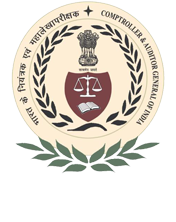Audit Reports

Karnataka
Performance Audit on Functioning of Bengaluru Metropolitan Transport Corporation
Overview
Public road transport plays a significant role in a city’s economic development and acts as the main support system in carrying passengers across different places. Bengaluru Metropolitan Transport Corporation (BMTC), which is wholly owned by Government of Karnataka (GoK), has been providing public bus transportation service in Bengaluru since 1997. Over the years, BMTC’s operations have grown and it currently serves over 5,130 Sq. kms, covering both urban and sub-urban areas.
A Performance audit was conducted to ascertain whether (i) The resources/ assets of the Corporation were utilised economically & effectively, efficiency was achieved in the operations of the Corporation to maintain passenger satisfaction; (ii) The Corporation maintained the required fleet strength along with adequate infrastructure including bus stations, depots, workshops and human resources so as to provide safe and reliable urban transport facilities to passengers, and; (iii) Adequate maintenance was undertaken to keep the vehicles roadworthy. The Performance Audit was covered for the period from 2017-18 to 2021-22. Impact of Covid-19 pandemic during 2020-22 on the operations and finances of the Corporation were also analysed in detail.
Issues relating to Operational Performance As on 31 March 2022, BMTC had a fleet strength of 6,799 buses (comprising ordinary and premium buses) and operated 5,547 schedules from 48 bus stations and 46 depots. BMTC’s fleet had an average operational kms per day of 11.31 lakh kms till March 2020 and this reduced to 5.88 to 6.81 lakh kms during the COVID-19 pandemic from 2020-22. The passenger base of BMTC recorded decline even before the pandemic from 44.37 lakh in 2017-2018 to 33.10 lakh in 2019-20. This indicated that BMTC was being less preferred for city transportation over the years. During 2017-20, the load factor ranged from 68 to 76.5 per cent in ordinary buses and ranged from 43.9 per cent to 54.7 per cent in premium buses.
Scientific planning of operations, optimal resource utilization and congenial working environment are essential to achieve BMTC’s stated objectives of providing integrated, reliable and safe transport services and to make BMTC as most preferred choice of transport in the city. For this purpose, BMTC should have gathered passenger ticketing data and analysed the same from time to time. BMTC envisaged the implementation of Intelligent Transport System (ITS) which was to serve as an integrated IT system comprising Vehicle Tracking Units, Electronic Ticketing Units, Passenger Information System Display Units, Data & Command Control Centre to improve its operational efficiency. However, the project was only partially implemented due to erroneous vendor selection, inadequate follow-up and monitoring. Resultantly, BMTC was riddled with operational issues such as unscientific planning of routes and schedules, poor connectivity and frequency, absence of passenger information system (PIS), cancellation of trips/schedules (kms) owing to shortage of buses/crew staff and use of overaged buses, etc. BMTC must ensure that schedules are prepared scientifically using quantitative techniques such as queuing theory, time and motion studies and after considering factors such as load factor, margin contribution, public demand, travel time, etc.
BMTC had 12.60 to 29.08 per cent of overaged buses in its fleet. The vehicle productivity of overaged buses was low and also inflated the fleet strength. Further, there was cancellation of scheduled kms due to vehicle related issues such as shortage of buses, vehicles kept off-road for repairs and maintenance, due to breakdown of buses, etc. Adequate spare buses (which have not outlived their useful life) may be maintained in the fleet and a robust system for sharing spare buses across depots may be evolved to avoid cancellations. Bus operations that do not fetch revenue are termed as dead kilometres and have
to be minimised. Such operations are essential for taking buses from depots to bus stations, for regular maintenance, docking/ repair, topping up of oil/ fuel, etc. Nine Depots (out of 10 examined) operated excess dead kilometres which led to avoidable expenditure of ₹2.64 crore. Audit recommends that decision on optimal depot location, origin/end points of routes and allocation of schedules amongst depots may be done after analysis of traffic and demand data to minimize the dead kilometres.
With a view to make public transport the preferred mode of transport in Bengaluru, Directorate of Urban Land Transport (DULT), GoK recommended operating Metro Feeder (MF) services by BMTC. Audit noticed that BMTC suffered higher losses in MF services than its regular operations. Audit recommends that while the losses on MF services can be brought down by better planning of schedules, BMTC should get adequately compensated by
Government for losses from MF service. Issues relating to maintenance of fleet and related infrastructure Systematic and regular maintenance of buses is essential for smooth fleet operation. In BMTC, regular maintenance of buses (docking) is carried out at the respective depots and for major repairs, buses are sent to workshops. Audit noticed extensive delays in sending buses to Central Workshops (CWS) by Depots and delays at CWS in vehicle servicing for fitness certification. These delays caused a huge loss of bus days and consequent loss of BMTC’s revenue. Shortage of men and equipment, infrastructure along with poor inventory management at CWS led to more off-road time for docked buses. BMTC was also dependent on Karnataka State Road Transport Corporation (KSRTC) for procurement of certain stores and for reconditioning of engines and fuel injection pumps.
Audit recommends that Government may ensure that BMTC has adequate working capital to guarantee timely supply of spare parts. BMTC may develop independent procurement procedure, CWS may be modernised with adequate machinery, equipment, technical staff and improved working conditions. Audit also noticed that maintenance of records in CWS was not proper and uniform. This needs to be rectified to facilitate proper management information to improve performances of CWS. Also, buses requiring shorter and longer time for repairs be segregated and buses requiring shorter time for repairs be prioritised to ensure availability of buses for operation.
Delays in regular maintenance at Depots had an adverse impact on performance of engines, batteries and spare parts. Between 2017-18 and 2019-20, in six Depots, expected fuel efficiency in terms of kilometre per liter (KMPL) was underachieved and this resulted in extra financial burden to the BMTC. BMTC must ensure that depots adhere to the prescribed maintenance schedules and may consider improving the frequency of docking by revising the norms. Issues relating to Financial Performance
Audit noticed that cost per km (CPKM) of operation has always been higher than the earning per km (EPKM). Operating Cost Ratio increased from 133.59 per cent in 2017-18 to 222.62 per cent in 2021-22. Personnel Cost (60 per cent) and Fuel Costs (27 per cent) were the major components of Operating Expenditure. Operational revenue did not increase commensurately to offset operational expenditure and since fare revision was not done since 2014-15, BMTC could not earn additional traffic revenue of ₹649.74 crore. Further, BMTC was not adequately compensated for implementation of GoK’s schemes such as free/concessional bus passes to students, senior citizens, etc. Considering that BMTC is a major public transport provider for the city, Audit recommends that Government should induce adequate capital, provide regular budgetary support and Government’s share of expenditure in the concessional bus pass schemes to be reimbursed to ensure financial sustainability of the Corporation. In such a scenario, BMTC must aim to maximise revenue maximization from other non-operating sources such as license fee from letting out commercial/office spaces and advertisements. License fee from shops and commercial establishments and advertisements revenue contributed 61.73 per cent of the non-operational revenue (excluding financial assistance from GoK)1 during 2017-22. As on 31 March 2022, BMTC had 1,062 acres of land at 239 locations. About 62 per cent of BMTC’s land was vacant for more than 15 years. However, BMTC had no action plan to utilize the land to earn non-operating revenue. 22 per cent of the vacant lands held by BMTC were unsuitable for its operations and land parcels suffered from encroachment and litigations. Audit recommends that BMTC may prepare an action plan for effective utilization and monetization of the land. BMTC may also reconsider acquiring land on lease basis unless it is required for immediate use.
BMTC’s revenue from advertisements reduced considerably between 2017-18 and 2021-22. This was due to restrictions imposed by Bruhat Bengaluru Mahanagara Palike (BBMP) and few litigations relating to road safety that were pending in Hon’ble High Court of Karnataka. However, no efforts were made by BMTC to resolve these issues and explore opportunities to earn advertisement revenue within the legal framework.Other issues
Though BMTC did not have any comprehensive environmental policy, There were certain initiatives such as scrapping of old vehicles and adoption of electric buses in the fleet and rainwater harvesting in the Corporation. Despite BMTC’s commitment to National Green Tribunal (NGT) regarding scrapping BS-III and BS-IV buses, there were unprecedented delays in scrapping 1 License fee- 48.37 per cent; Advertisement Revenue- 13.35 per cent Performance Audit Report on Functioning of BMTC of old buses. Audit recommends that action may be taken for scrapping and disposal of old buses as per the commitment made to NGT. Further, BMTC was unable to meet internally set targets on rainwater harvesting and had set up one of its CWS in an ecologically sensitive area (without preparation of DPR) that restricted its operations. Therefore, BMTC needs to identify ecologically sensitive lands in possession and construction may be done only after Environmental Impact Assessment studies and formulation of Detailed Project Reports.
Download Audit Report
-
Performance Audit on Functioning of Bengaluru Metropolitan Transport Corporation
 (10.69 MB)
Download
(10.69 MB)
Download

